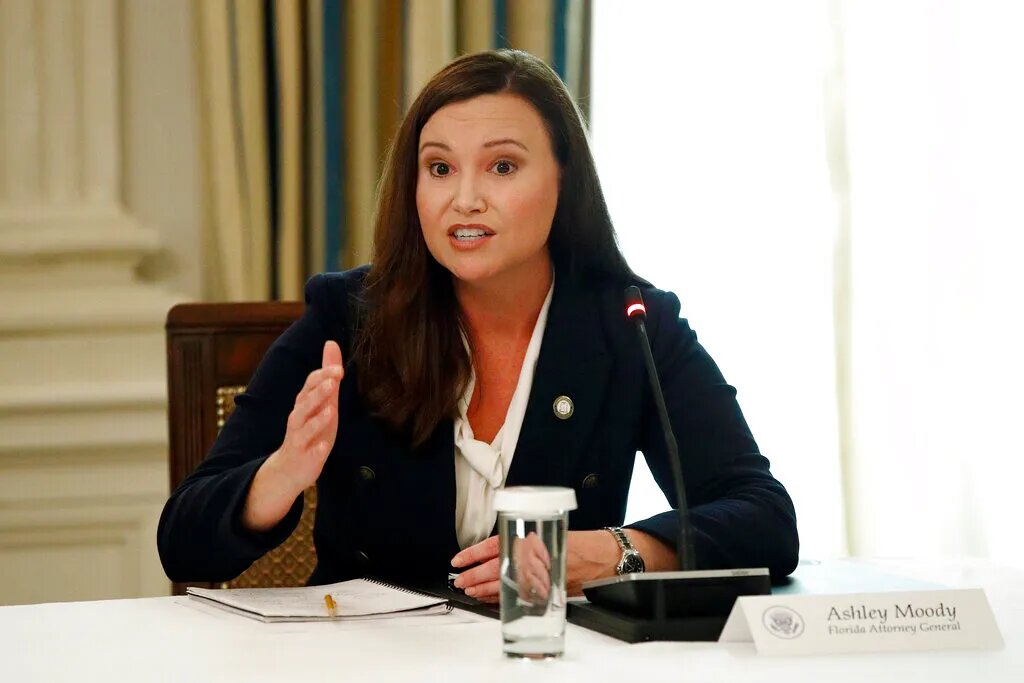Just in After the snub, War Erupted in FSU Against….
Florida’s AG launches antitrust probe against the College Football Playoff selection committee
Florida Attorney General Ashley Moody announced on Tuesday that she is investigating the College Football Playoff selection committee for leaving Florida State out of the Top 4.

According to Moody, the state’s antitrust division is sending the committee a civil investigative demand for “more information about the nature of possible contracts, conspiracies in restraint of trade, or monopolization of trade and commerce relating to anticompetitive effects of the College Football Playoff.”
“I’m a lifelong Gator, but I’m also the Florida attorney general, and I know injustice when I see it,” Moody said in a video announcement in front of Florida State’s home field, Doak Campbell Stadium. “No rational person or college football fan can look at this situation and not be concerned about the outcome.” Antitrust rules apply to the NCAA, leagues, and the College Football Playoff committee.
“My office has launched an investigation to determine whether the committee engaged in any anticompetitive behavior.” As it stands, the committee’s decision smacks of bias, so we’re expecting answers not just for FSU, but for all schools, teams, and college football fans. Merit is important in Florida. If it was attention they were after, the committee surely got it now.”
Florida State went 13-0 and won the ACC title game, but they were the first Power 5 conference champions to be left out of the playoffs when teams were chosen last week. The loss to starting quarterback Jordan Travis, according to CFP committee chair Boo Corrigan, was a major factor in the Seminoles’ exclusion. The four-team playoff featured undefeated powers Michigan and Washington, as well as one-loss teams Texas and Alabama.
Last Monday, Florida Gov. Ron DeSantis requested $1 million to be set aside for Florida State University to fight the committee if it so chooses. The Florida Legislature, which returns to session next month, must agree on a budget.
Moody wants communications between the SEC, ACC, NCAA, ESPN Group of 5 and Power 5 conferences regarding deliberations, compensation of committee members, how individual committee members voted, the names of those present during any vote, and information related to the software used to record votes as part of the investigation, among other things.





